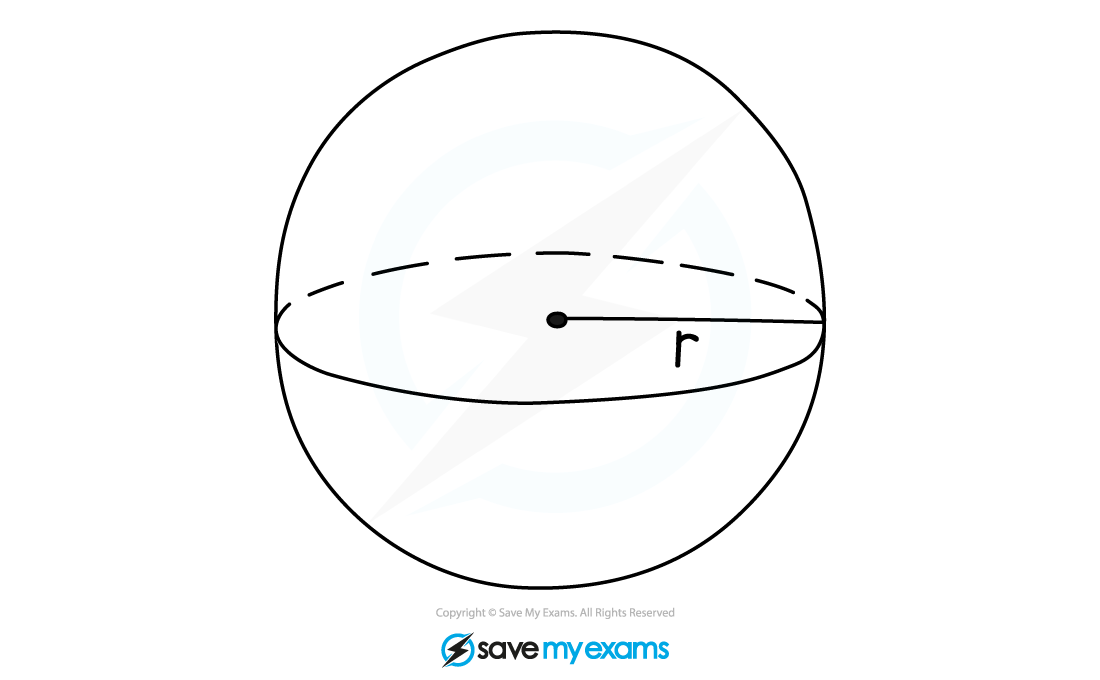Surface Area (Cambridge (CIE) IGCSE International Maths): Revision Note
Exam code: 0607
Did this video help you?
Surface Area
What is surface area?
The surface area of a 3D object is the sum of the areas of all the faces that make up the shape
Area is a 2D idea being applied into a 3D situation
A face is one of the flat or curved surfaces that make up a 3D object
How do I find the surface area of cubes, cuboids, pyramids, and prisms?
In cubes, cuboids, polygonal-based pyramids, and polygonal-based prisms (ie. pyramids and prisms whose bases have straight sides), all the faces are flat
The surface area is found by
calculating the area of each individual flat face
adding these areas together
You should remember the formula for the area of a rectangle, but you are given the area of a triangle in your exam
When calculating surface area, it can be helpful to draw a 2D net for the 3D shape in question
For example, consider a square-based pyramid where the top of the pyramid is directly above the centre of the base
Its net will consist of a square base and four identical isosceles triangular faces
Calculate the area of a square and the area of each triangle then add them together

How do I find the surface area of a cylinder?
A cylinder has two flat surfaces (the top and the base) and one curved surface
The net of a cylinder consists of two circles and a rectangle

The curved surface area of a cylinder, A, with base radius, r, and height, h, is therefore given by
This formula is given to you in the exam
The total surface area of a cylinder, ATotal, can be found using the formula
This formula is not given to you in the exam
How do I find the surface area of a cone?
A cone has one flat surface (the base) and one curved surface
The net of a cone, with radius, r, perpendicular height, h, and sloping edge, (slant height), l, consists of
A circular base
A sector with radius, l, and an arc length equal to the circumference of the base

The curved surface area of a cone, A, with radius, r, perpendicular height, h, and sloping edge, l, can be found using the formula
This formula is given to you in the exam
The total surface area of a cone, ATotal, can be found using the formula
This formula is not given to you in the exam
How do I find the surface area of a sphere?
A sphere has a single curved surface

The surface area of a sphere, A, with radius, r, can be found using the formula
This formula is given to you in the exam
A hemisphere has half the curved surface area of a sphere and the flat circular base

The surface area of a hemisphere, A, with radius, r, can be found using the formula
This formula is not given to you in the exam
Examiner Tips and Tricks
The curved surface area for a cylinder, cone and sphere are given to you in the exam
Read the question carefully, you may need to add additional areas, e.g. a base
Make you are confident in calculating the areas of rectangles, circles and triangles
Worked Example
A toy consists of a cone of radius 5 cm and slant height 12 cm placed on top of a hemisphere with the same radius. Find the total surface area of the toy. Give your answer to 3 significant figures.

Answer:
Calculate the curved surface area of the cone using the formula,
Calculate the curved surface area of a hemisphere using the formula for the curved surface area of a sphere, and dividing it by 2
Add the two areas together to find the total surface area of the toy
Evaluate on your calc and round to 3 significant figures
346 cm2 (3 s.f.)

Unlock more, it's free!
Did this page help you?